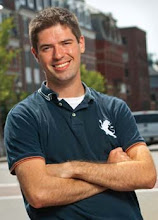 On Wednesday last I went to what is possibly my favorite Moscow theater, which is, to use its official title, The Moscow Theater of Drama and Comedy on the Taganka. In common parlance, it is the Taganka. This theater has a couple of claims to fame:
On Wednesday last I went to what is possibly my favorite Moscow theater, which is, to use its official title, The Moscow Theater of Drama and Comedy on the Taganka. In common parlance, it is the Taganka. This theater has a couple of claims to fame:1. Its first production with the current director (who is 92 years old) was the late-1960s Good Man from Szechuan, applauded for its dissidence. This director, Liubimov, was exiled from the Soviet Union under Andropov for a couple of years, which, as with many forbidden things, made his return to the Moscow theatrical arena all the sweeter.The play I saw, Skazki [Fairytales] was a very Russian and only slightly postmodern interpretation of four different tales: Anderson's "The Little Mermaid," Wilde's "The Happy Prince," and Dickens's "A Christmas Carol" and "Cricket on the Hearth."
2. Until his death, the poet/musician Vladimir Vysotsky (Russian equivalent of Bob Dylan, but who is also a sex symbol) was the primo donno.
3. "Taganka" used to be the name of the city prison located at the same square. It's changed quite a bit in the past century. I may or may not be pursuing it as a possible location for special study on the 'evolving face of the Soviet city.' :D
In the hopes of saving my breath and your patience with this blog, I'll just quote the arts critic Maria Sedykh (full article here to explain what Liubimov hoped to portray:
A few months ago I called Yury Petrovich to comment for this journal, “Itogi,” how the economic crisis has affected his theatrical process. He answered immediately: “I, as before, have created an anti-crisis play.” And the thought came to my mind that this is, of course, some kind of prepared public statement – “anti…” But Liubimov immediately continued: “We need to help people to live through a hard time.” Not to comfort, not to cast an “enchanted sleep.” To help. But how can the authors of “The Little Mermaid,” “The Happy Prince,” and “The Cricket on the Hearth,” Anderson, Wilde, and Dickens, help us? Again we remember that good will defeat evil…For some reason Sedykh ignores A Christmas Carol in her description, but the sentiment remains the same.
Especially striking for me was inverted relationship between the realism in the story and the realism of its portrayal. You can see in the picture a floating violinist. They also had trampolines. In general, it was awesome because it combined two of my loves: pretentious theater and acrobatics. The more serious the storyline became (read as: as the stories progressed into the two Dickens pieces) the less narrative everything became. The less lines any actor had. All of a sudden, no one's even saying anything, it's just music, and a four-part dance; in one corner, John's going mad with jealousy, in another, the old man is revealing himself to be Edward in disguise (and "Americanized" [read as: putting on a tweed jacket and cowboy hat]); along the skirt a group is dancing, and on the thrust, an ancient actress who has been with Liubimov since the mid-60s is sitting in a chair as the Queen-Mother Mrs. Fielding.
The last line spoken of the entire play is Mr. Tackleton's acceptance of young May and Edward's love (he is something of a Scrooge character, for those not familiar with this less-popular story). That is - it ends on a downer. The whole company's on stage, and they're standing there silently, and the audience, one can tell, is waiting for just one person to start clapping, and then everyone will, and all of a sudden the company goes "OHP!" and starts dancing. Vysotsky (this one not related to the sex symbol, but having become himself a primo donno of sorts) and two other men start doing wild acrobatics on the trampolines. Everyone else is dancing and singing.
"OHP!" Then they start taking their bows. And then we're clapping, and they keep screaming "OHP!" as if hearing it enough times we'll come to our senses and be happy with our own pechal'nye skazki (doleful fairytales).
Bizarre. Anyway. I like this theater especially because - and this might be a whole post, later - there's a wide range in how people speak in Russia. Sometimes they're incomprehensible, even to other Russians, and sometimes their normal speaking voice is extremely nasal or with an extremely high glottis (like the voice kids use in school until a teacher catches them and tells them it's NOT OK to make fun of people with speech impediments). The actors here, with their trained phonetics and phonologies, are 1) relatively easy to understand 2) in possession of voices it's pleasant to listen to. Especially I enjoyed listening to Vysotsky (the narrator), Smirennov (Edward and Bob Cratchet), Riabushinskaya (the Sea Witch) and Khlestkina (the bird in "Happy Prince"). Those names mean nothing to anyone, I know. Too bad for you.
ROD
Opening lines: Ia ne ponimaiu, pochemu nam nel'zia byt' schastlivym imenno seichas. "I don't understand why we can't be happy right now, at this moment."

No comments:
Post a Comment